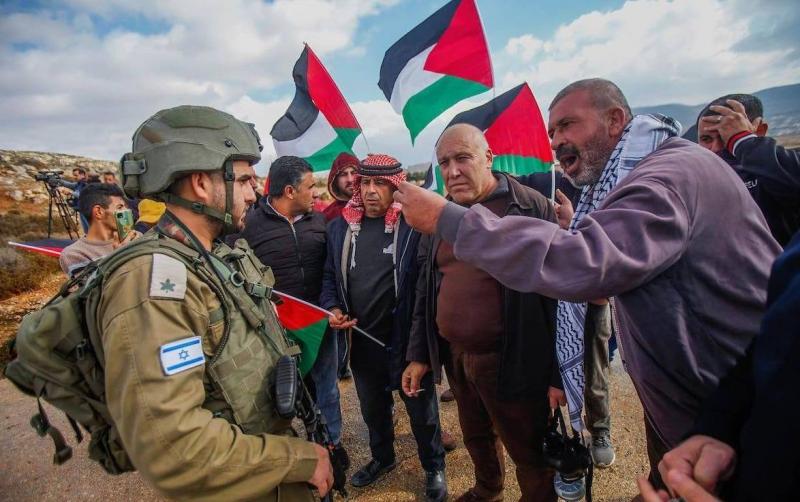The Middle East is experiencing a state of political tension and security readiness, deemed one of the most dangerous in recent years. All indicators warn of an imminent explosion between Iran and Israel, extending through the surrounding countries. Despite warnings from several Arab and regional nations about the escalation of the situation leading to unacceptable and regrettable outcomes, it seems there is no one to listen. As usual, Iran has turned a deaf ear, hearing only its own threats and warnings. Meanwhile, Israel is flexing its military might.
The Iranian-Israeli confrontation is currently entering a phase of "playing with nerves," characterized by official statements from both countries that only hint at strikes and revenge. This situation of "verbal provocation" is dangerously close to turning into "playing with fire," potentially igniting a war—either directly between the two states or through their supporting arms.
This stance produces two similar scenes in this "virtual battle"—so far, Iran is making bold threats to retaliate, claiming that Israel will pay a heavy price after the death of Hamas leader Ismail Haniya, while he is a guest at the inauguration of Iran's new president, Masoud Pezeshkian, in Tehran. On the other hand, Tel Aviv exchanges threats, warning of readiness for any scenario that Iran might implement.
The back-and-forth verbal sparring exacerbates the already tense situation. On one hand, Tehran feels international embarrassment regarding its ability to maintain internal security and the internal conflicts that are rumored, especially after the "mysterious" plane incident that claimed the lives of its former president Ibrahim Raisi, foreign minister Hossein Amir-Abdollahian, and several officials, followed by Haniya's death. In contrast, Israel is living through a nightmare of war in Gaza and its enduring humanitarian and political repercussions over the past ten months, coupled with a new predicament as Iran holds it responsible for Haniya's death.
So far, all Iran is doing is threatening and hinting, and perhaps all it can do—if it does act—is use its arms in the regional countries of Lebanon, Yemen, Iraq, or Syria. This increases the danger of an explosion in a region where its populations feel the looming threat. An unknown future casts a shadow over everyone, and significant losses are incurred by the economies of countries still suffering from the effects of what has been termed the "Arab Spring." Even Israel itself is beginning to feel economic hardships as the war on Gaza continues, with Fitch recently announcing a downgrade in its credit rating. The ramifications extend to other economies, including aviation, tourism, and investment.
The current and potential collapse in the Middle East is politically and economically borne by both Iran and Israel as they are the focal points of violence in the region—Israel bolstered by American support and Western backing, while Tehran, thousands of kilometers away from Tel Aviv, mobilizes and uses its militias to conduct a proxy war, complicating the situation further and obscuring clarity.
Amid this political clamor, the only undeniable truth is that Iran—through its affiliated groups—is the sole beneficiary of the region's escalation, attempting to whitewash its image and presenting itself—falsely—as the "valiant hero" defending Gaza. On the other hand, the Israeli side prioritizes its interests and stubbornness over all considerations, values, and calculations, exploiting the Iranian threat to portray itself as the aggrieved and threatened party. This dynamic turns Arab populations, including the people of Gaza, into victims of a clash of interests and agendas, with no outcome other than the displacement of people and the destruction of their future.




